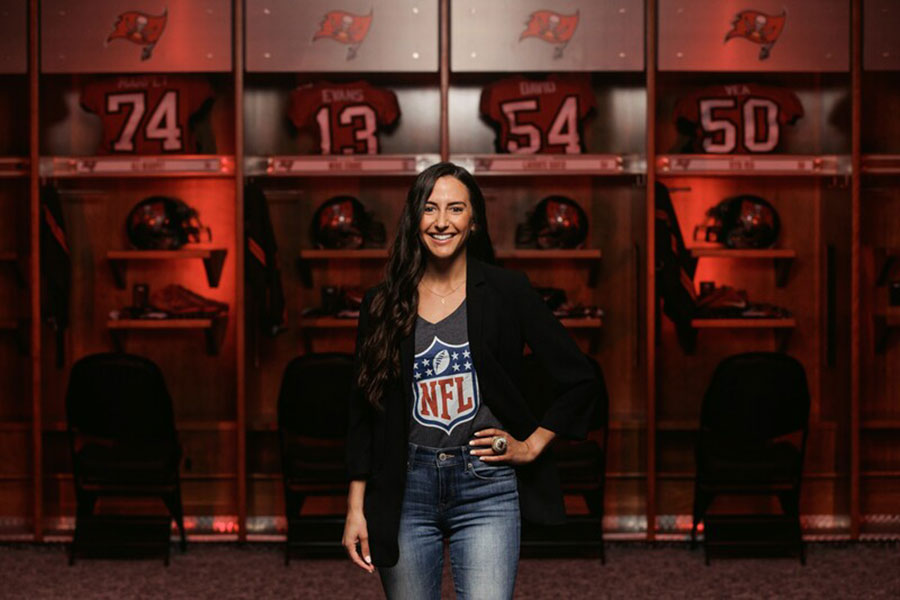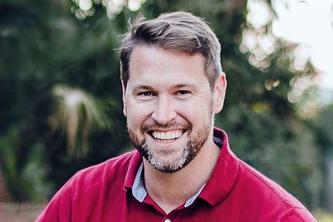
Emily Lekahal ’16 may not have earned her Super Bowl ring by scoring a winning touchdown, but make no mistake, there was still plenty of practice involved—just not the kind that takes place on the field. While studying at Minnesota Law, Lekahal completed an internship with the Minnesota Vikings, which, she says “was the best thing that could have happened for my career.”
Knowing that she wanted a career in sports law, Lekahal says that Minnesota Law “just checked all the boxes.”
Why did you choose the University of Minnesota?
I spent a lot of time trying to find the right law school fit for me. Minnesota just checked all the boxes: located in a big city, top rankings, national reach, Big 10 conference, professional sports teams, Fortune 500 businesses, and, lastly, genuinely good people who cared about your future, from professors to career counselors. I would not have landed my dream job in the NFL without going to Minnesota Law.
How did you get your job with the Buccaneers?
My internship with the Minnesota Vikings was the best thing that could have happened for my career. The connections I made, along with the work experience I got, helped me land my job with the LPGA and the Buccaneers. My advice is to give an internship your best and create meaningful relationships that last.
What’s a typical day on the job?
For better or worse, there is no typical day. The majority of my job consists of contracts, whether drafting, negotiating, or reviewing. At the end of the day, the Tampa Bay Buccaneers is a business, so our job is managing risk for the company. This comes with many different hats.
What advice would you give to a law student or a newer lawyer looking to work in the sports industry?
The good thing about breaking into the sports industry is that there isn’t a standard path. Being a sports lawyer means working with so many different sides of the law that no experience is bad or disadvantageous for a career in sports. And just like anything, a lot of it is who you know. While in law school I met so many sports and entertainment professionals through the Sports Law Society who I’m still in touch with today. Always keep networking.
What are a couple of your favorite memories of your time at Minnesota Law?
Sticking with the sports theme, some of my favorite moments were during campus intramurals. Our section would have a team each semester (volleyball, basketball, kickball), and it was such a great time to blow off some steam with your classmates.
Minnesota Law is a place known for putting an emphasis on leadership. What does being a good leader mean to you?
I think the most important characteristic of a good leader is credibility. Good leaders gain credibility through doing their job well, holding themselves accountable, and treating people with respect under all circumstances. When a leader lacks that credibility, I think trust becomes an issue, which can hurt retention and the organization’s culture.
This story was adapted from Minnesota Law alumni magazine.
- Categories:
- Law and Policy




